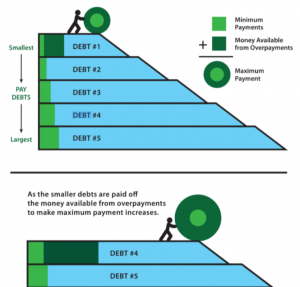
You can guess that the truth in the Bible is often at odds with the advice and opinion of popular sources. The working world often considers God’s word foolishness, as having no value for our everyday lives. Friday, August 26, 2022’s Word Among Us presents a reflection on 1 Corinthians 1:17-25 that expresses this paradox well. Here is the first part of that entry:
“What is the wisdom of this world? A lot of contemporary wisdom seems to revolve around being in control and being master of your own destiny. It might be slick advertising telling you that you need the newest phone and the fastest internet speed to stay on top of the latest trends. Or it might be in the form of self-help programs telling you to find happiness by taking charge of your life. Either way, power and wisdom seem to be found in self-determination and control.
How different that is from the message of the cross, which reveals to us God’s own wisdom!”
In my book It’s Not Your Money I present an interesting “World Says vs. God Says” dynamic. One example of this tension in the financial planning realm is the very practical and common advice to pay yourself first. What that means is that we are to contribute to our retirement plans by payroll deduction and/or have an automatic draft of our checking accounts go directly to savings. This is to happen first before any net pay hits our accounts. The thinking is that we don’t see these dollars and so aren’t tempted to spend them. It is our self-determination to build up funds for the future. And it is sound financial planning practice.
Except, it is not what God asks us to do. God says we are to pay Him first. Here are just a few of the many Bible verses that tell us this truth plainly:
Exodus 23:19 The choicest first fruits of your soil you shall bring to the house of the LORD, your God.
Leviticus 2:12 Such you may present to the LORD in the offering of the first produce that is processed.
Deuteronomy 18:4 The first fruits of your grain, your wine, and your oil, as well as the first shearing of your flock, you shall also give him.
Proverbs 3:9 Honor the LORD with your wealth, with first fruits of all your produce.
On the surface, this is scary stuff. Too many people don’t even pay themselves first. Their budgets are too tight. They worry that if they tithe and give alms before any other bills are paid or any amounts saved, then they may not have enough to support their lifestyle choices, much less to provide for future college expenses and retirement. They write off this Biblical teaching as foolishness, as Old Testament law not applicable to us New Testament people.
We know that Jesus did not come to do away with the law (Mt. 5:17). Truly, the New Testament takes this pay-God-first teaching even further. We Christians are not only to pay God first, but we are to give Him everything as He gives everything to us. That’s a topic for another reflection, but for today, let’s just admit that what God asks us to do – pay HIm first – is at odds with sound financial advice. It is thought to be counter-cultural, out of touch with financial realities. The world considers it foolish. But the foolishness of God is wiser than human wisdom (1 Cor. 1:25).
When I bought into this foolishness and took the step of faith to pay God from my first fruits, I gained a sense of freedom and peace that surprised me. Freedom comes to me because paying God first prioritizes my spending. I put my weekly offering to the church, as well as donations to charities first in my budget, and then I pay myself second. Knowing that I am both giving back to God for all the blessings and benefits He gives to me, and that I am saving for the future then allows me to spend the rest of the budget almost any way I choose. In structuring my spending plan this way, I gain a sense of peace of mind. I believe I am doing what God asks of me, and as a result, I get the peace that comes from being obedient to His word.
So, can you be foolish by the world’s standards? Take courage. Trust God at His word. Step out in faith and put giving first in your finances. Maybe even consider signing up for online giving? Regardless of how you give, whether by cash, check, online, stocks, and QCD’s, give of your first fruits to the church and to charities that feed, clothe, house, and help the poor.
Giving makes us active participants in the mission of the Church. It makes us a part of something larger, more majestic, and holier than ourselves. Giving is an act of praise and worship. It is an expression of gratitude for all the blessings God gives to us.
How big an impact could you make if you obeyed God’s commands to give to Him first? Think about how much better our communities would be if we all would act so foolishly. We would change the world because God’s foolishness is wiser than human wisdom (1 Cor. 1:27).
¹Reprinted with permission of The Word Among Us, 7115 Guilford Dr #100, Frederick, MD 21704 Issue Date (e.g. July 2022), wau.org, 1-800-775-9673

